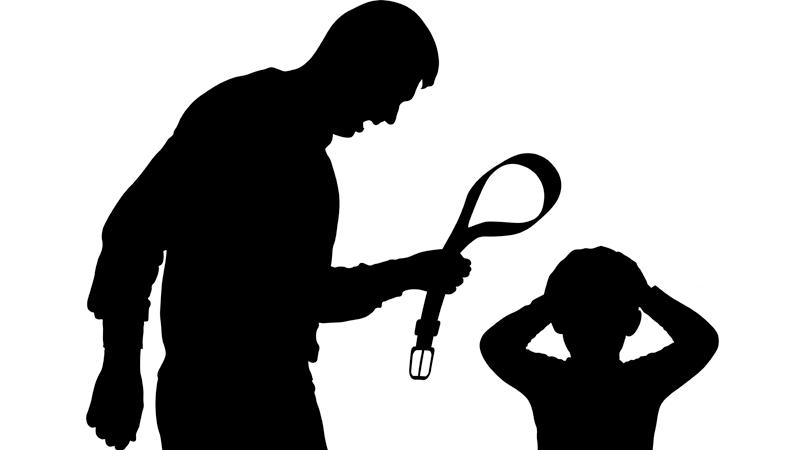
A video, just before former State Minister Ranjan Ramanayake’s episode of droll self-mockery came out, gripped the country by a wave of despair. Can elders treat children who were entrusted to their care so inhumanely? The answer is yes, and the video depicts just the tip of an ice-berg, just as leaked videos allude to the decadence in body politic.
Though the man who recorded it had a longer clip, the one that was released to the media was short, but captured the stark violence of the incident. It shows a woman tying the hands of a girl, while another kicked her relentlessly. Then both women proceeded to kick the girl as one held her by the hair. The women then use a bat to beat the girl. It is noticeable that the girl does not resist her punishment.
A little boy, who seemed agitated by the event, carries another younger boy away from the scene. The incident has taken place at Nikaweratiya.
The grandmother of the 13-year-old girl told the media that the two women were the girl’s step-mother and her sister, a Grama Niladhari from the area.
She said that her father was planning to give the girl in marriage to a boy who came to work in the village, and added that the child had been assaulted by them in other occasions as well. She was already on probation care. Following the incident, the grandmother has tried to lodge a complaint with the Children and Women Bureau of the local Police station, but was told the statement cannot be recorded as they would have to come back the next day. The officer, who also has seen the video, has told the grandmother that the child would have done something wrong to be punished that way. Also, that it was alright because the child didn’t die.
The girl’s father, her step-mother and the Grama Niladari were arrested over the incident, and remanded till January 16 by the Nikaweratiya Magistrate. The Grama Niladari was suspended.
‘The Save the Children’ organization strongly condemned this incident, which it dubbed as ‘heinous acts of cruelty’ against the child.
“We urge the public to refrain from sharing the particular video to protect the rights of the child involved. Circulating such a video on media platforms directly infringes the child’s right to privacy and fails to safeguard her dignity and protection,” it stated adding, “unfortunately this is not an isolated incident. A significant number of children in Sri Lanka face physical violence on a regular basis. Any form of violence against children should not be tolerated. It is the responsibility of everyone to protect children from all forms of violence”.
‘Save the Children’ added that it is critical that “we change our beliefs on punishing children and seeking positive ways of disciplining them”.
Sri Lanka is one of the 59 countries that have signed the United Nations Convention on the Rights of the Child. The Article 19 of the convention states “Governments should ensure that children are properly cared for and protect them from violence, abuse and neglect by their parents, or anyone else who looks after them”.
Sri Lanka is committed to prohibiting corporal punishment, which the UN’s Committee on the Rights of the Child defines as “any punishment in which physical force is used and intended to cause some degree of pain or discomfort, however light”, of children. This followed the regional consultation of the UN Study on Violence against Children in 2005. The country repeated its commitment at the Universal Periodic Review of Sri Lanka in 2017.
‘Stop Child Cruelty’ points out that despite this, the country “lags behind the rest of the world in eliminating corporal punishment. Even though there have been Government directives /circulars instructing staff not to use corporal punishment in schools, such punitive disciplinary procedures are condoned by many educators and parents, and continue to be legal / lawful”. It added, “it is socially acceptable because they reflect upon their own personal experiences, often glorifying severe punishments they received in their youth. Punishment is justified on the basis that such cruel activities did not harm us, certainly it would not harm our children”.
Dr. Tush Wickramanayaka of ‘Stop Child Cruelty’ called the Nikawaratiya incident a ‘national crisis.
She said to avoid such situations the country has to look into two key aspects. “One is changing the laws that are there to ban corporal punishment unequivocally, and the other is to activate the National Child Protection Policy,” she added.
The cabinet has recognized the National Child Protection Policy, but Dr. Wickramanayaka said it is crucial to activate it before the general elections.
